A compassionate life.
Written version.
Compassion is often described as the awareness, recognition and understanding of suffering, coupled with the desire to relieve it.
So when we think about self-compassion in the context of chronic illness, the process seems pretty straightforward, right?
Say the equation goes like this; suffering brought on by chronic illness > taking action to relieve that suffering.
But I don’t think it is that straightforward, and I think there are three reasons why.
Reason a: the societal belief that chronic illness = broken, unworthy, less than, sparks thoughts that are pretty anti-compassionate within oneself.
Reason b: the mainstream understanding that chronic illness = allll suffering, which is impressed upon the individual actually living with chronic illness.
Reason c: the many, easily grabable ways to relieve suffering - that aren’t actually that compassionate at all - used to self soothe.
And now, finally the time has come to put my secondary school algebra to good use…
Getting caught in a cycle of a+b = c
That cocktail of factors increases the probability of falling into a cycle that will have you feeling horrible about the fact you - a person in This World - lives with chronic illness; feeling horrible about the way your chronic illness appears in your life; and searching for the nearest things that will take those horrible feelings away, disguised as self-compassion.
It’s compassion based on the belief that chronic illness must mean suffering.
It’s compassion as an anaesthetic for all the things society has us believe about ourselves - and life with - chronic illness (which is suffering in itself).
It’s compassion in the form of the ‘pill’ (literally and figuratively) we’re provided to relieve that suffering by the very people who have impressed a lot of that suffering upon us.
That kind of compassion doesn’t feel good in the long term, it feels muddy and tainted, it feels like something that’s used to push your lived experience deep inside, and it feels volatile.
So how about you blow the whole thing up? What if compassion wasn’t a reaction to suffering, but a core ingredient to the way you live your life and treat yourself?
What if you challenged those common beliefs and understandings - just as you’re doing within YCIA - and sought a deeper form of self-compassion, there to help you navigate any suffering as it happens, not just after.
I want you to know a compassion that feels pure and rich and delicious. I want you to show yourself compassion because you know you're worth it (just as you are) and because it makes you feel good, not only as a way to soothe (or even numb and anaesthetise).
When we experience compassion in this way, life becomes sweeter. It’s like a fertiliser for joy, pleasure and abundance. All of which are fertilisers themselves, for healing.
This week is all about finding all the nooks and crannies of your life that you can plant seeds of compassion in. We’ve looked at the words you use when you speak to yourself, but how about the way you live, moment to moment, day to day?
A question I like to ask myself is;
If my day was being led by nourishment what would I choose in this moment?
(you can replace nourishment with compassion/kindness/love/care)
I use it as a mantra, a reminder and a nudge when things feel a bit out of kilter.
Just the other day I was feeling a bit fraught, conscious of some time sensitive work I had to get done in the morning. I was running a little behind my usual routine and I was about to shift my most treasured morning meditation to later in the day (which, no kidding anyone, means it won’t end up getting done), but I paused and asked myself that question;
If my day was being led by nourishment what would I choose in this moment?
I did the meditation, I got the work done I needed to do in a calm and intentional way, I spent the rest of the day feeling relaxed, like I had all the time in the world, like no matter what, all will be OK (meditation makes me feel like that) and bloody proud that I’d made the decision to put myself first.
That day could’ve looked a whole load different.
So for the next few days, give it a go. Start your day with that question. Ask it repeatedly when things jar, when you notice you’re breathing into your chest and your shoulders are up by your ears. And take note of the things you do differently as proof that you can.
